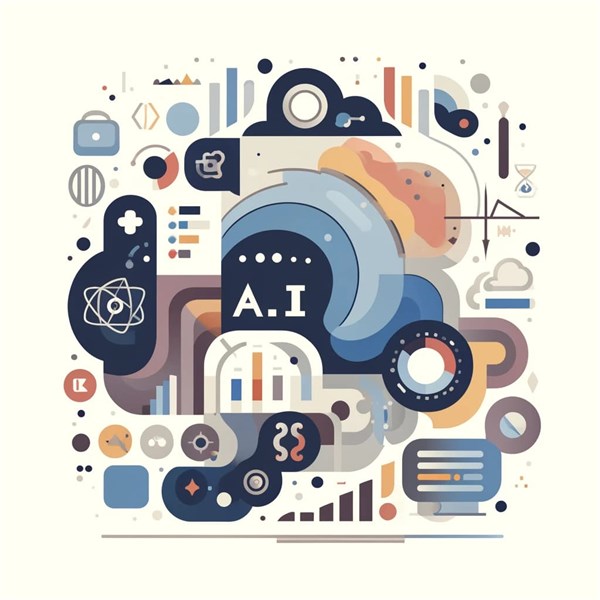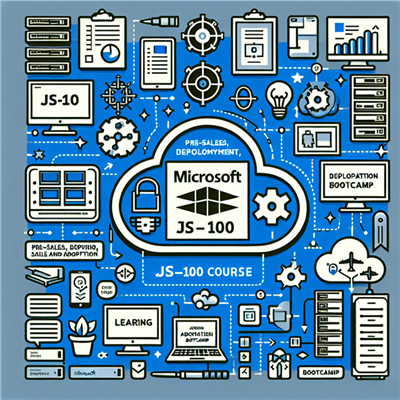
In today’s fast-paced digital landscape, artificial intelligence (AI) has emerged as a transformative technology that drives innovation across various industries. Organizations are leveraging AI to enhance operational efficiency, improve customer experience, and derive actionable insights from data. As a result, there is a growing demand for professionals who possess AI skills, making AI certification an attractive option for those looking to advance their careers. Among various certification offerings, Microsoft AI Certification stands out, providing individuals with the knowledge and expertise needed to excel in AI-related roles.
Skills You will Learn from Microsoft AI Certification
This blog will delve into the top five skills you will gain from Microsoft AI Certification and their relevance in the workplace.
1. Understanding of Machine Learning Concepts
One of the foundational skills you will acquire through Microsoft AI Certification is a solid understanding of machine learning (ML) concepts. Machine learning is at the core of AI, allowing systems to learn from data and improve their performance over time without explicit programming.
Key Components:
- Supervised Learning: Learn how to train models using labeled data, making predictions, and evaluating their accuracy.
- Unsupervised Learning: Understand techniques for identifying patterns in data without labeled responses, such as clustering and dimensionality reduction.
- Model Evaluation: Gain insights into various metrics and methods used to assess model performance, including confusion matrix, precision, recall, and F1-score.
Relevance in the Workplace:
Organizations rely heavily on machine learning to analyze large datasets, automate processes, and make data-driven decisions. A firm grasp of ML concepts enables professionals to develop predictive models, enhance business intelligence, and contribute to innovative solutions that drive success.
2. Proficiency in Data Analysis and Visualization
Data is the lifeblood of AI, and the ability to analyze and visualize data effectively is crucial for any AI professional. Microsoft AI Certification equips you with essential data analysis skills, allowing you to interpret complex datasets and derive meaningful insights.
Key Components:
- Data Preprocessing: Learn techniques for cleaning, transforming, and preparing data for analysis, including handling missing values and normalization.
- Data Visualization: Gain experience with visualization tools and libraries, such as Matplotlib, Seaborn, and Power BI, to create informative charts and dashboards.
- Statistical Analysis: Understand fundamental statistical concepts to interpret data distributions, correlations, and trends accurately.
Relevance in the Workplace:
Being able to analyze and visualize data allows professionals to communicate insights effectively to stakeholders, facilitating informed decision-making. Organizations depend on data-driven insights to enhance marketing strategies, improve operational efficiency, and predict customer behavior.
3. Familiarity with AI Tools and Frameworks
Microsoft AI Certification provides exposure to a variety of AI tools and frameworks commonly used in the industry. Familiarity with these technologies enables professionals to implement AI solutions effectively and efficiently.
Key Components:
- Azure Machine Learning: Learn how to use Azure’s powerful cloud-based platform for building, training, and deploying machine learning models.
- Cognitive Services: Explore Microsoft’s suite of pre-built AI services that enable developers to add intelligent features to their applications, such as image recognition, natural language processing, and speech recognition.
- Python and R Programming: Gain proficiency in programming languages that are essential for AI development, including data manipulation, model building, and algorithm implementation.
Relevance in the Workplace:
With the growing reliance on AI solutions, organizations are seeking professionals who can work with modern AI tools. Familiarity with platforms like Azure can significantly enhance your employability and enable you to contribute effectively to projects that leverage AI technologies.
4. Knowledge of Natural Language Processing (NLP)
Natural Language Processing (NLP) is a critical area within AI that focuses on the interaction between computers and human language. Microsoft AI Certification helps you develop skills in NLP, equipping you to work on applications that involve text and speech processing.
Key Components:
- Text Processing Techniques: Learn how to preprocess text data, including tokenization, stemming, and lemmatization.
- Sentiment Analysis: Understand how to build models that determine the sentiment expressed in text data, enabling businesses to gauge customer feedback and opinions.
- Chatbot Development: Gain insights into creating conversational agents using NLP, allowing organizations to improve customer service through automated interactions.
Relevance in the Workplace:
As more businesses adopt AI-driven solutions for customer engagement and support, the demand for professionals with NLP skills is on the rise. Understanding NLP enables you to develop innovative solutions that enhance user experiences and automate communication processes.
5. Ethics and Responsible AI Practices
As AI technologies become more prevalent, the importance of ethical considerations and responsible AI practices has grown significantly. Microsoft AI Certification emphasizes the need for professionals to understand the ethical implications of AI and to implement responsible practices in their work.
Key Components:
- Fairness and Bias: Learn how to identify and mitigate biases in AI models to ensure fairness in decision-making processes.
- Transparency: Understand the importance of transparency in AI systems, enabling stakeholders to understand how models arrive at decisions.
- Compliance and Regulation: Gain knowledge of legal and regulatory frameworks governing AI, ensuring that AI applications adhere to ethical standards and legal requirements.
Relevance in the Workplace:
Organizations are increasingly prioritizing ethical AI practices to build trust with customers and avoid potential legal ramifications. Professionals who are well-versed in responsible AI practices are valuable assets to companies seeking to navigate the ethical landscape of AI technology.
Conclusion
Earning a Microsoft AI Certification provides professionals with a comprehensive skill set that is essential for success in the rapidly evolving field of artificial intelligence. The skills gained through this certification—ranging from machine learning concepts and data analysis to NLP and ethical practices—are highly relevant in today’s job market. As organizations continue to leverage AI to drive innovation and enhance operational efficiency, certified professionals will be well-positioned to capitalize on emerging opportunities and contribute to the advancement of AI technologies. Whether you are just starting your career or looking to enhance your existing skills, Microsoft AI Certification can be a game-changer in your professional journey.
With the increasing demand for AI skills in the job market, obtaining a Microsoft AI certification is a smart career move. Koenig Solutions, a leading IT training company, offers comprehensive Microsoft AI training and courses to help professionals stay ahead in the competitive tech industry.



.jpgM.jpg)



COMMENT